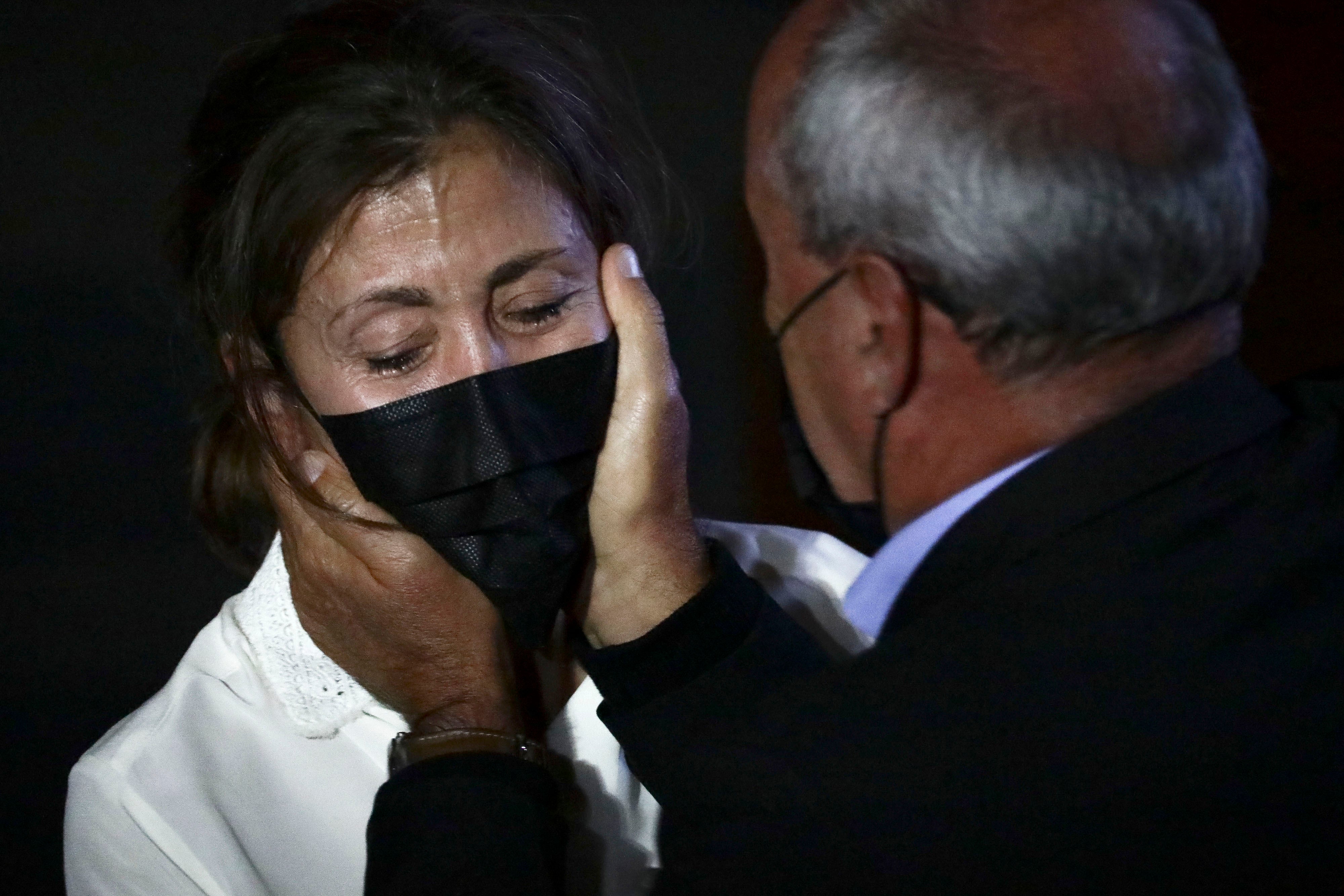Ex-Colombian rebels, kidnapping victims meet face to face
Men and women who were kidnapped by Colombian’s biggest guerrilla group during a decades long internal conflict have met face to face with their captors during an event meant for the rebels to admit their responsibility

Your support helps us to tell the story
From reproductive rights to climate change to Big Tech, The Independent is on the ground when the story is developing. Whether it's investigating the financials of Elon Musk's pro-Trump PAC or producing our latest documentary, 'The A Word', which shines a light on the American women fighting for reproductive rights, we know how important it is to parse out the facts from the messaging.
At such a critical moment in US history, we need reporters on the ground. Your donation allows us to keep sending journalists to speak to both sides of the story.
The Independent is trusted by Americans across the entire political spectrum. And unlike many other quality news outlets, we choose not to lock Americans out of our reporting and analysis with paywalls. We believe quality journalism should be available to everyone, paid for by those who can afford it.
Your support makes all the difference.Men and women who were kidnapped by Colombian’s biggest guerrilla group during a decades long internal conflict met face to face with their captors Wednesday during an event meant for the rebels to admit their responsibility, a step toward reconciliation contemplated in a peace deal signed in 2016 by the government and the combatants.
The emotional meeting between the victims and members of the now-defunct Revolutionary Armed Forces of Colombia, known by its Spanish acronym FARC, was convened by a commission with no judicial powers but responsibility for helping clarify what exactly happened during the conflict.
“I would never have imagined in the depths of my captivity that one day I would have the possibility of a human dialogue with my former captors,” said former presidential candidate Íngrid Betancourt, who was kidnapped for six years and four months. “... We can say that love is greater, that there is hope, and if there is hope, there is a future.”
Former FARC members have previously asked for forgiveness from victims and acknowledged the kidnappings of more than 21,300 people throughout the South American nation, but the Truth Commission and victims, including Betancourt, saw Wednesday’s event as an opportunity for ex-leaders of the group to admit their actions without cynicism or justifying them as a response to the conditions of war.
Colombians remain divided over who should be held to account for the decades of violence that only diminished with the peace accord that called for the disarmament of the FARC. The agreement also established a tribunal that offers perpetrators reduced sentences if they help with investigations and are willing to provide reparations to victims.
Betancourt was kidnapped in February 2002 while she was campaigning. She was rescued in June 2008 when the Colombian army deceived the FARC with a fictitious humanitarian operation after infiltrating secret communications. Three members of the U.S. military and 11 individuals with the Colombian armed forces who had been kidnapped for up to a decade were also rescued.
The FARC in 2019 recognized for the first time its responsibility for the kidnapping, and in April rebels accepted before the postwar tribunal the accusation for crimes against humanity.
“We present ourselves here, with our heads bowed and our hearts in hand,” said Rodrigo Londoño, the last FARC commander and now leader of a political party made up of ex-combatants. “... We are truly sorry and hope that some time they can forgive us for the unspeakable damage inflicted.”
The investigations by the tribunal have concluded that the FARC subjected its victims to torture, sexual violence, forced displacement and attacks on their personal dignity. The kidnappings were used to finance their operations with the ransom they demanded from families of the victims, force the exchange of imprisoned guerrilla members and control territories.
Roberto Lacouture, who was kidnapped in 1989, was visibly moved during the event. He said he disagrees with the peace accord but decided to attend the meeting to ask the FARC to “tell the truth.”
“I suddenly cannot forgive ... I don’t know what will happen, but what I am not going to do is forget all the atrocities that have been committed,” Lacouture said.
Betancourt, who now lives in France said after the meeting that she had expected more explanations and repentance from the ex-combatants.
“I must confess that I am surprised that we, on this side of the stage, are all crying, and that on the other (side), there was not a single tear,” she said.